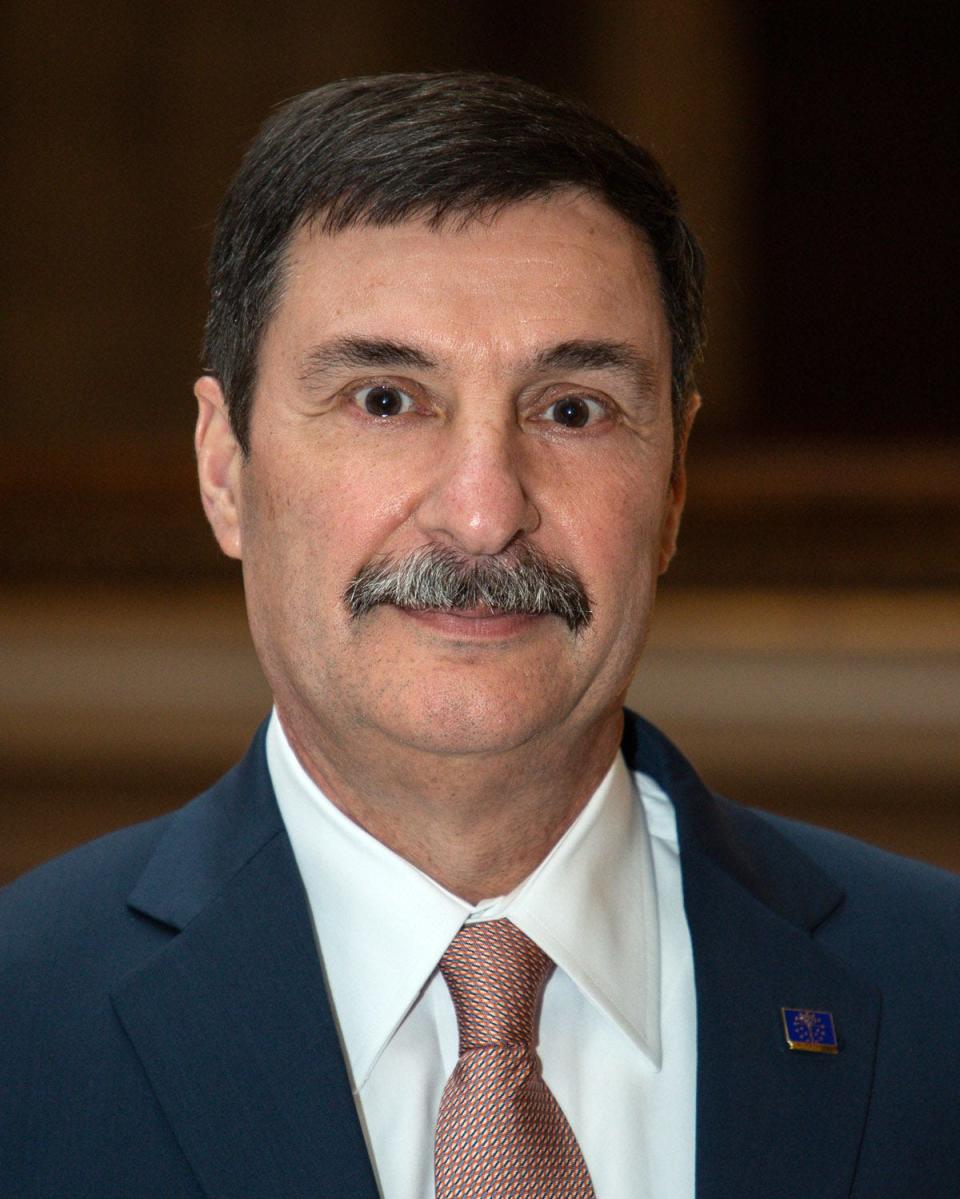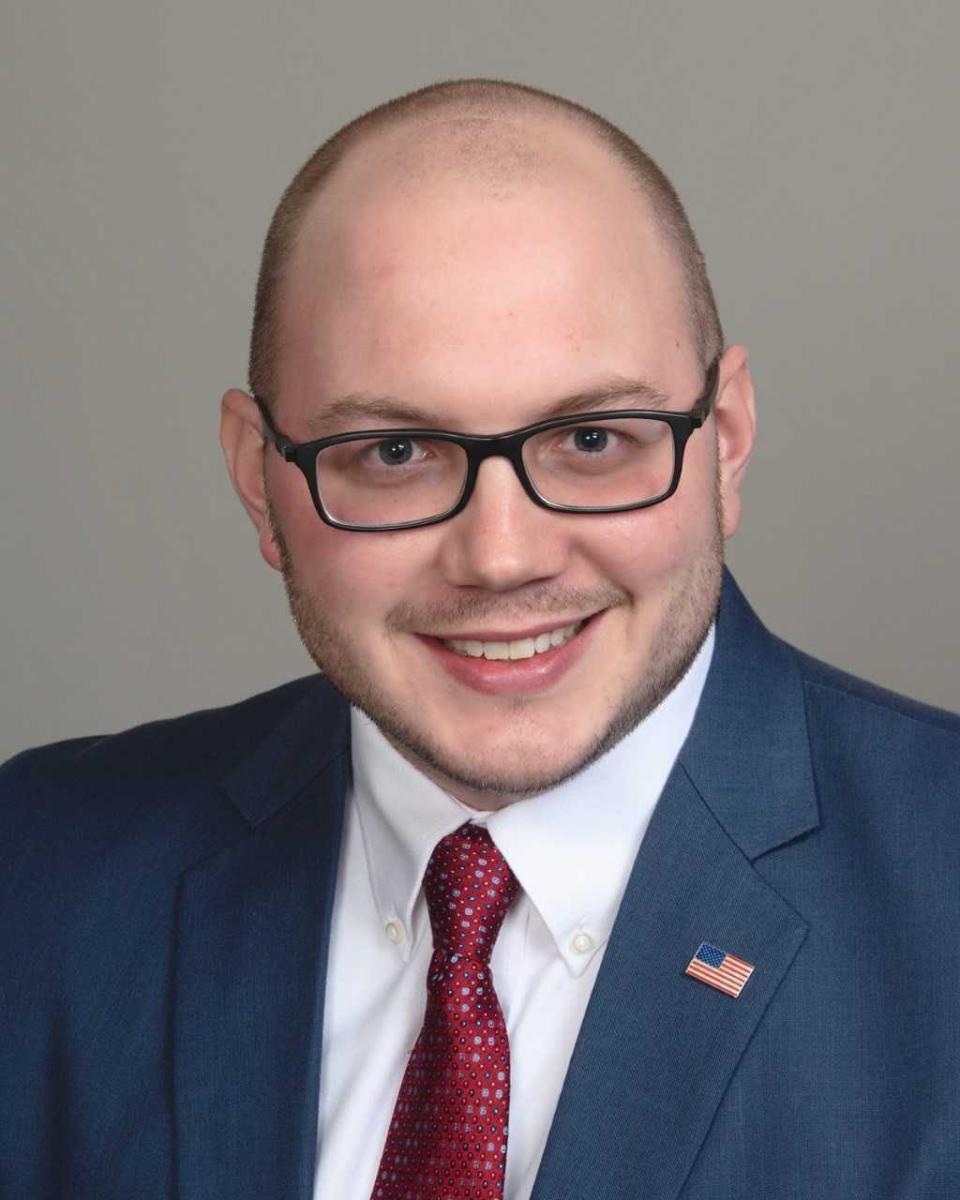Ross Deal and Jake Teshka in an Indiana House District 7 rematch
- Oops!Something went wrong.Please try again later.
- Oops!Something went wrong.Please try again later.
The Tribune is partnering with the League of Women Voters of the South Bend Area and the American Democracy Project of Indiana University South Bend to publish candidates' answers to questions on the issues. The League and IUSB's ADP operates Vote411.org, a website with information about the candidates and their positions on key issues. The site also includes other tools to help navigate the voting process.
The Tribune has agreed to run candidate answers unedited, meaning any spelling, typographical or grammatical errors are the candidates' own. The Tribune is publishing only some of the questions from a selection of significant races. Additional questions and answers are available at Vote411.org.

Ross Deal
Democrat
Insurance agent
ross.deal@sbcglobal.net
rossdealforindiana.com
574-258-0805

Jake Teshka
Republican
Candidate did not respond.
Which issue is more pressing in Indiana: voter access or election fraud? Which is the greater threat to election integrity? Explain.
Deal: The state of Indiana has in place a large number of safeguards to the election system which guarantee fair elections. There have been no credible charges of fraud since these safeguards have been implemented. The greater concern is access to the polls. Efforts to add hours to election day, add days to the early voting period, to make election day a holiday and make it easier to vote by mail have all been defeated by the GOP super majority. This is very unfortunate given that Indiana ranks very low in voter turnout. In order to have representative government function at its best, all citizens need to be heard. Legislators should be taking action to make it easier to vote. They have done the opposite.
Teshka: Did not respond.
If elected, what is the first bill you will champion in the 2023 legislative session? Why that one?
Deal: If elected I would seek legalization of medical marijuana. While not conclusive, evidence suggests that there are benefits to people suffering from a variety of conditions including, Alzheimer’s, ALS, HIV/Aids, Crohn’s, Epilepsy, Glaucoma, MS, Severe chronic pain, and side effects of cancer treatment. Veterans and those suffering from PTSD might also benefit. Additionally, I believe that this will help to address the opioid epidemic by creating an alternative to these powerfully addicting drugs.
Teshka: Did not respond.
Indiana ranks poorly when it comes to maternal health. What, if anything, should the legislature do about this problem?
Deal: The state needs to do a better job of engaging, empowering and educating women. It is important that access to health care be equal across the socio-economic spectrum since poor women and women of color are most at risk. Tele-health services need to be expanded and multi-disciplinary care plans implemented. Complications of pregnancy, childbirth and the postpartum period rank among the top causes of death for women 20-34. It is essential that women have care during this time in particular. Indiana has the resources to accomplish this. The legislature needs to make it a priority by creating a Maternal Mortality Review Committee which is said to be the gold standard in identifying and reviewing pregnancy related health issues.
Teshka: Did not respond.
On Aug. 5, the Indiana General Assembly passed a law banning abortion except in cases of rape and incest (before 10-weeks post-fertilization), to protect the life and physical health of the mother, or if a fetus is diagnosed with a lethal anomaly. Do you support this new law? Do you think the law goes too far, or not far enough, in restricting access to abortion?
Deal: What the facts tell me is that total abortion bans do not work, they make abortion less safe, and result in increased maternal mortality rates. Indiana already has the third highest maternal mortality in the nation. Exceptions for rape, incest, fetal fatal anomaly and life of the mother are vital and these medical decisions should be made between a woman and her doctor without government interference. Every situation is unique as is every individual. This legislation is a “one size fits all,” approach. The facts tell us that those who have the means will still obtain the care they need. Those women at the lower end of the socio-economic spectrum will be most penalized. The legislature missed an opportunity to hear directly from the voters by putting the question on the ballot in the form of a non-binding referendum. Instead, the mostly male supermajority chose to impose their will based on personal religious beliefs. I would favor keeping the as it was before September 15th!
Teshka: Did not respond.
What is your stance on wetlands protection in Indiana? Is there too much regulation, too little regulation, or something in between?
Deal: The legislature has continued on a path of sacrificing the environment in favor of special interests. In 2021 a bill was passed which stripped important wetlands protection that had been in place since 2004. Wetlands not only provide important habitat they filter pollutants and help to mitigate flooding by absorbing and retaining excess water. In the last one hundred years Indiana has lost eighty-five percent of its wetlands. Not coincidentally, I believe, we are seeing the effects of climate change become more prevalent. The legislature needs to follow the science not the money of the special interests.
Teshka: Did not respond.
This article originally appeared on South Bend Tribune: Deal, Teshka in rematch for seat representing South Bend's south side

